Behavioral Skills
Foster positive behaviors in children with our Behavioral Skills Home Therapy Resources. These tools promote self-discipline, emotional regulation, and cooperation, helping children manage emotions and build respectful, mindful behaviors.

Explore the Best Behavioral Skills Resources for Kids
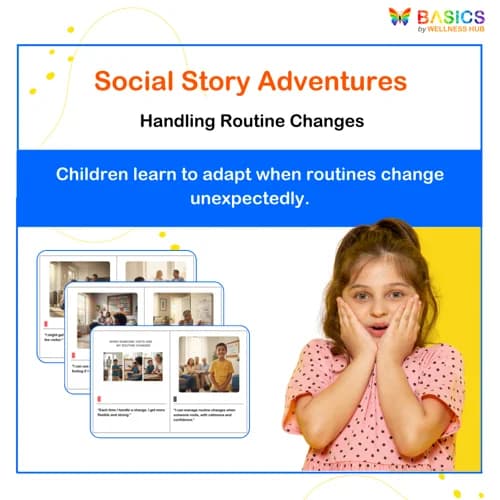
Social Story: When Someone Visits and My Routine Changes
₹ 80.00
₹ 160.00
50% off
4.8 (48 ratings)
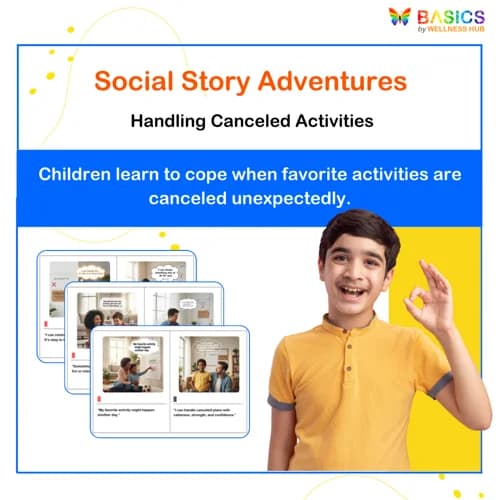
Social Story: When My Favorite Activity Is Canceled
₹ 80.00
₹ 160.00
50% off
4.9 (52 ratings)
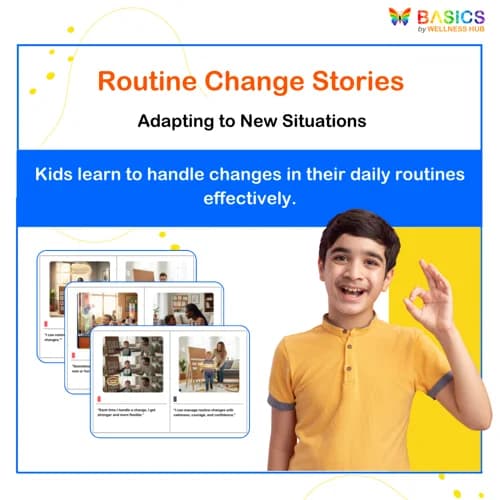
What to Do When My Routine Changes – Social Story for Kids
₹ 80.00
₹ 160.00
50% off
4.8 (48 ratings)
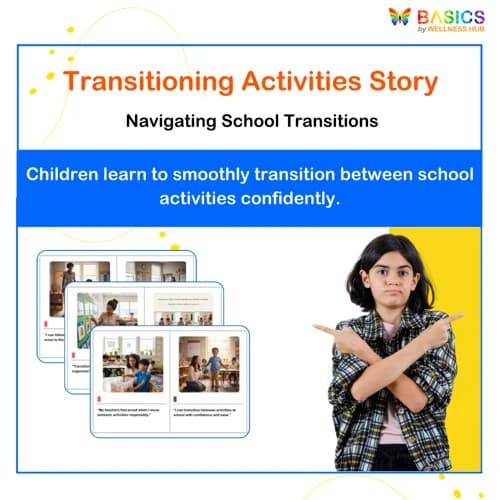
Transitioning Between Activities at School – Social Story PDF
₹ 80.00
₹ 160.00
50% off
5.0 (56 ratings)
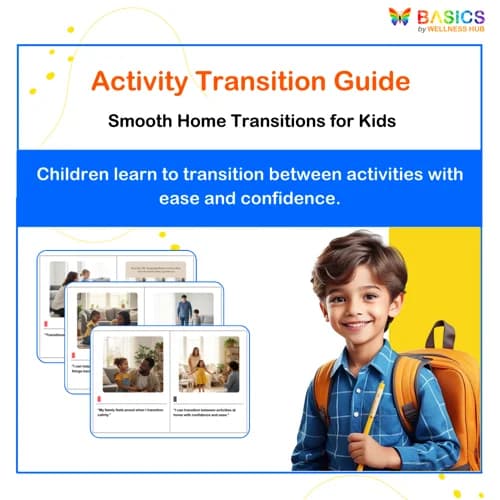
Transitioning Between Activities at Home – Social Story PDF
₹ 80.00
₹ 160.00
50% off
4.8 (48 ratings)
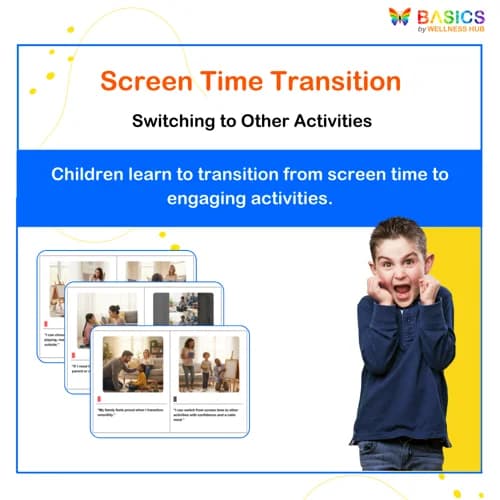
Switching from Screen Time to Other Activities – Social Story PDF
₹ 80.00
₹ 160.00
50% off
4.9 (52 ratings)
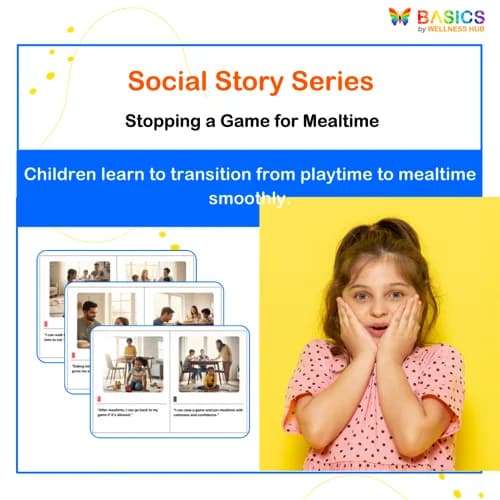
Stopping a Game to Join Mealtime – Social Story for Kids
₹ 80.00
₹ 160.00
50% off
5.0 (56 ratings)
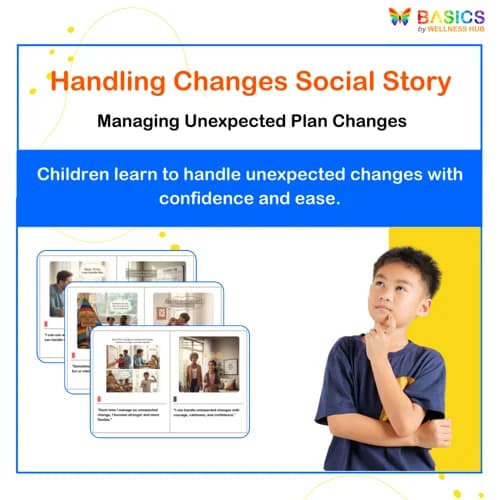
Handling Unexpected Changes in Plans – Social Story PDF for Kids
₹ 80.00
₹ 160.00
50% off
5.0 (56 ratings)
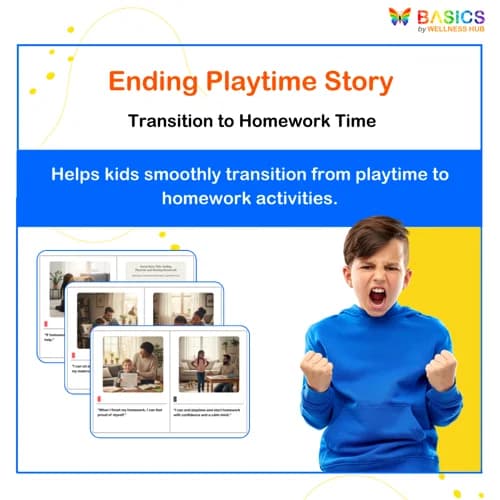
Ending Playtime and Starting Homework – Social Story for Kids
₹ 80.00
₹ 160.00
50% off
4.9 (52 ratings)
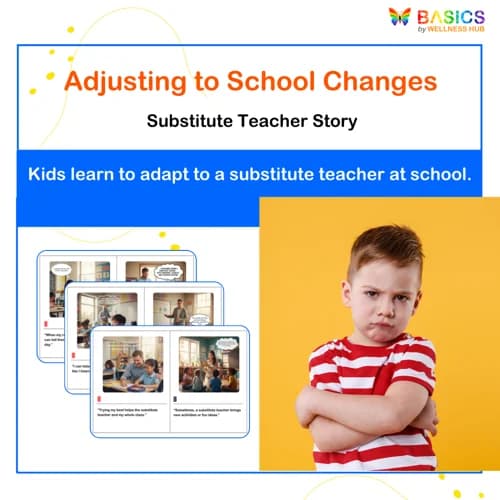
Adjusting to a Substitute Teacher – Social Story for Kids
₹ 80.00
₹ 160.00
50% off
4.8 (48 ratings)
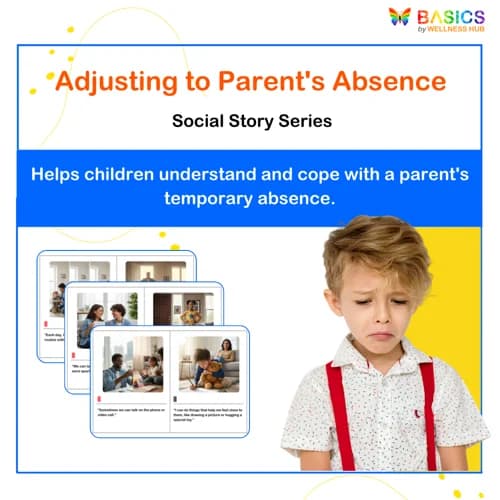
Social Story: Adjusting to a Parent Being Away
₹ 80.00
₹ 160.00
50% off
4.9 (52 ratings)
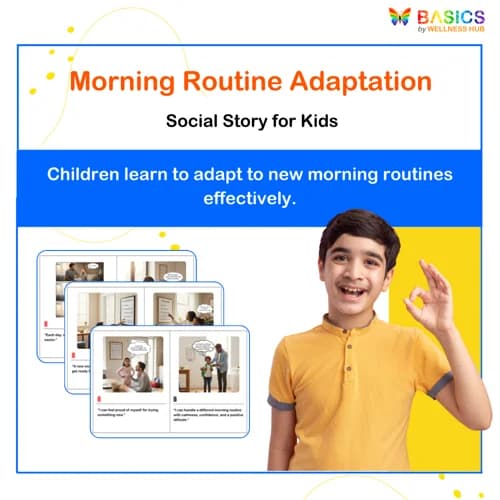
Adapting to a Different Morning Routine – Social Story for Kids
₹ 80.00
₹ 160.00
50% off
4.8 (48 ratings)
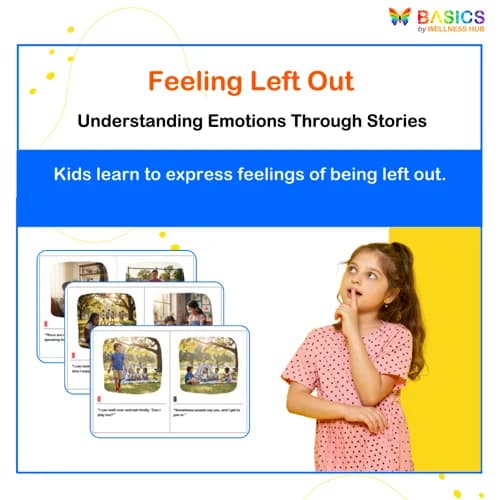
What to Do If I Feel Left Out – Social Story for Kids
₹ 80.00
₹ 160.00
50% off
4.9 (52 ratings)
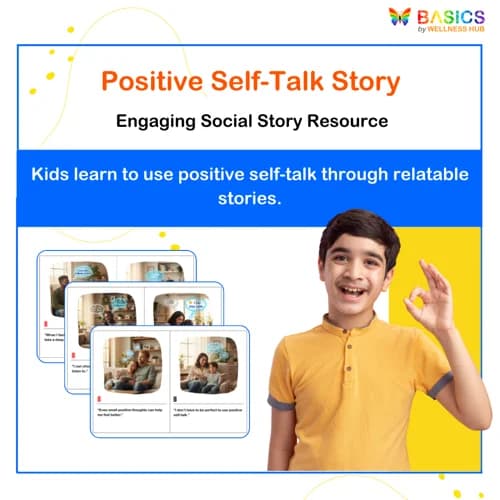
Using Positive Self-Talk: Social Story for Kids
₹ 80.00
₹ 160.00
50% off
5.0 (56 ratings)
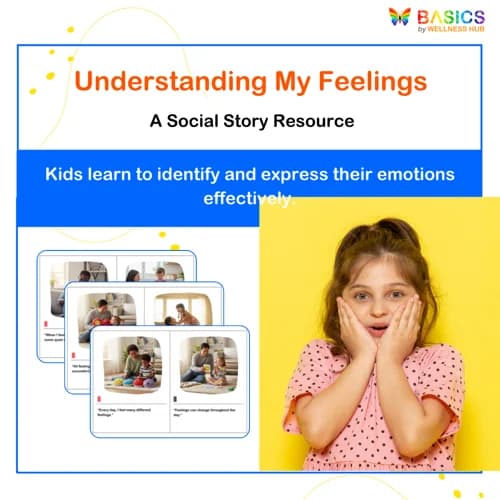
Understanding My Feelings: Social Story with Activities for Kids
₹ 80.00
₹ 160.00
50% off
4.8 (48 ratings)
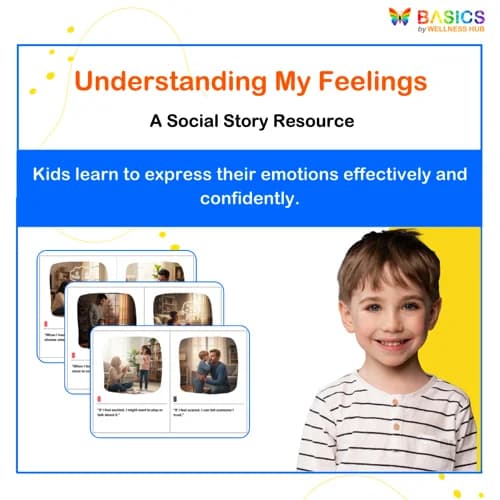
Telling Others How I Feel – Social Story with Activities
₹ 80.00
₹ 160.00
50% off
5.0 (56 ratings)
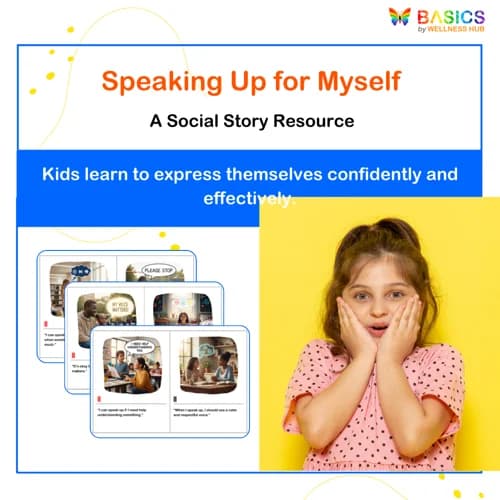
Speaking Up for Myself – Social Story with Activities
₹ 80.00
₹ 160.00
50% off
4.9 (52 ratings)
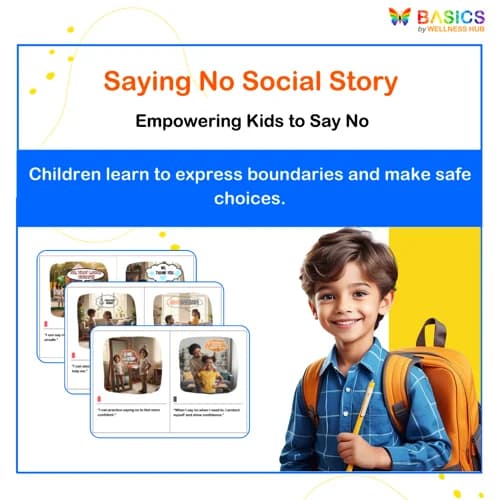
Saying No When I Need To – Social Story for Kids
₹ 80.00
₹ 160.00
50% off
5.0 (56 ratings)
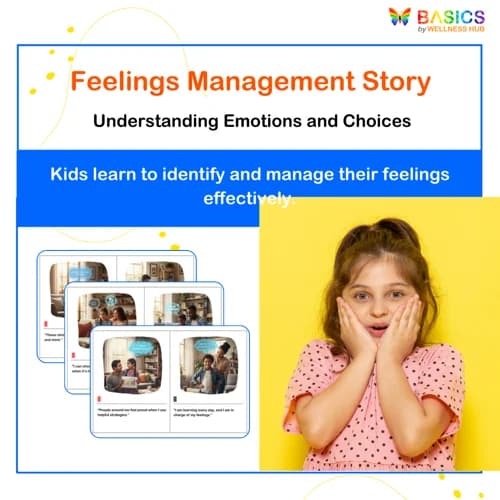
I Am in Charge of My Feelings – Social Story for Emotional Awareness
₹ 80.00
₹ 160.00
50% off
4.9 (52 ratings)
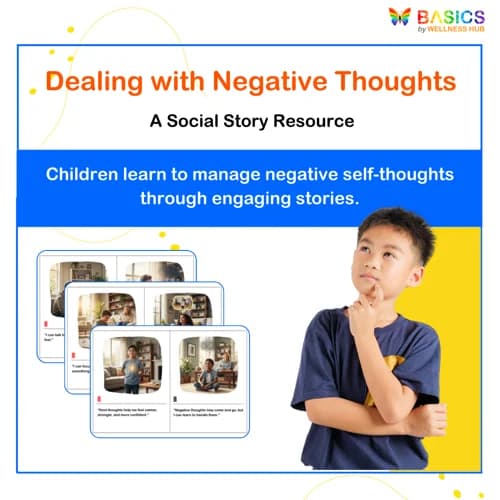
Dealing with Negative Thoughts – Social Story for Kids
₹ 80.00
₹ 160.00
50% off
4.8 (48 ratings)
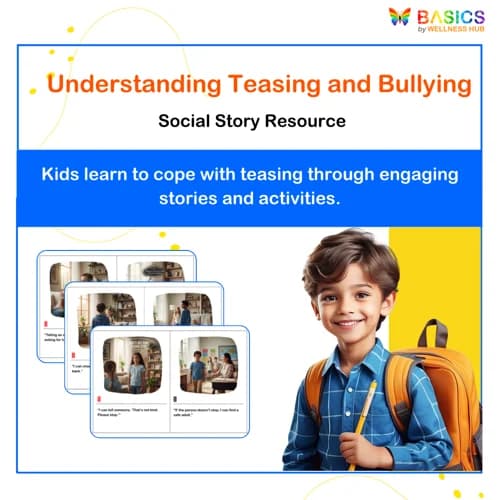
Social Story: When Someone Makes Fun of Me – Coping Strategies for Kids
₹ 80.00
₹ 160.00
50% off
4.8 (48 ratings)
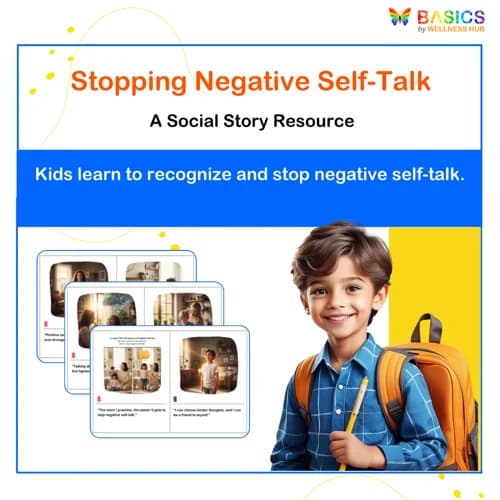
Recognizing and Stopping Negative Self-Talk – Social Story for Kids
₹ 80.00
₹ 160.00
50% off
4.9 (52 ratings)
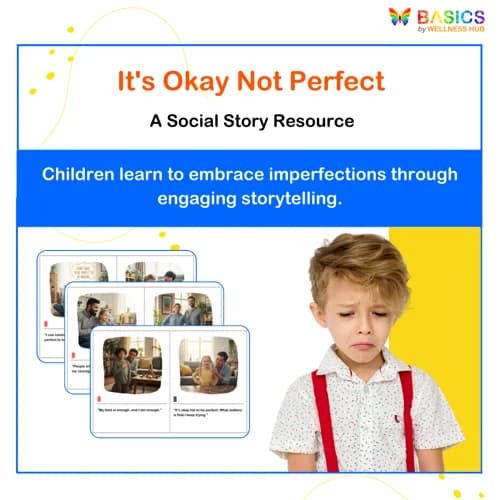
It's Okay Not to Be Perfect – Social Story for Kids
₹ 80.00
₹ 160.00
50% off
4.9 (52 ratings)
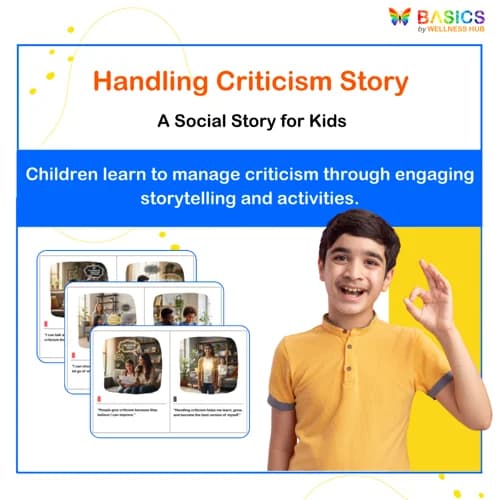
How to Handle Criticism – Social Story for Kids
₹ 80.00
₹ 160.00
50% off
5.0 (56 ratings)
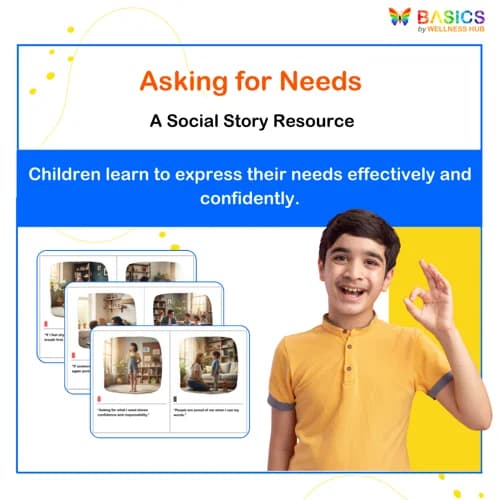
Asking for What I Need – Social Story for Kids
₹ 80.00
₹ 160.00
50% off
5.0 (54 ratings)

Minimal Pair Flashcards for /r/ Sound Practice: R vs L, N, W, D
₹ 80.00
₹ 160.00
50% off
4.8 (48 ratings)
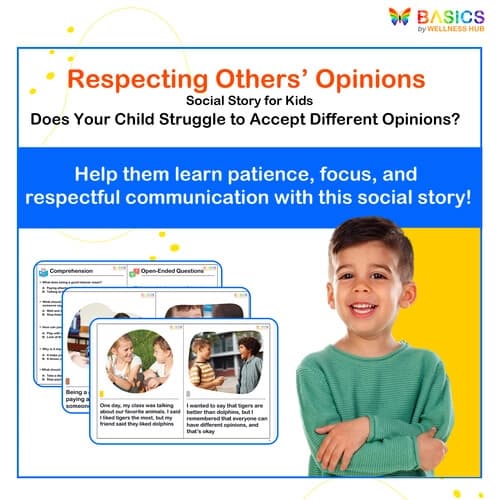
Respecting Others’ Opinions – Free Social Story for Kids
FREE
₹160
100% off
4.8 (46 ratings)
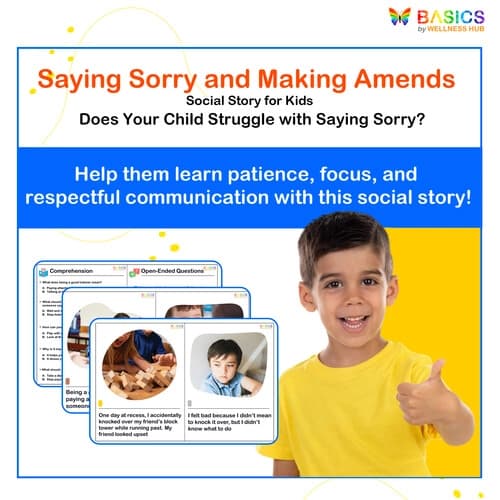
Saying Sorry and Making Amends – Social Story for Kids
₹ 80.00
₹ 160.00
50% off
5.0 (42 ratings)
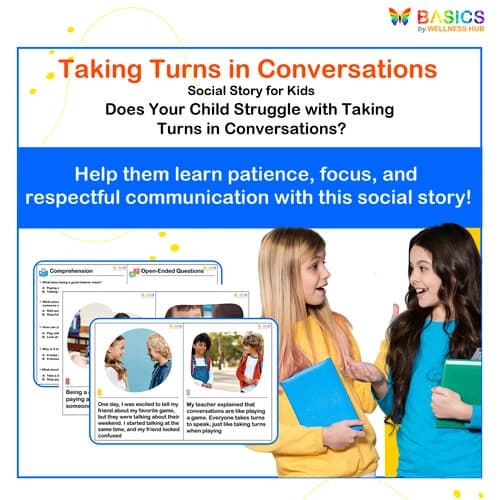
Taking Turns in Conversations – Social Story for Kids
₹ 80.00
₹ 160.00
50% off
4.9 (60 ratings)
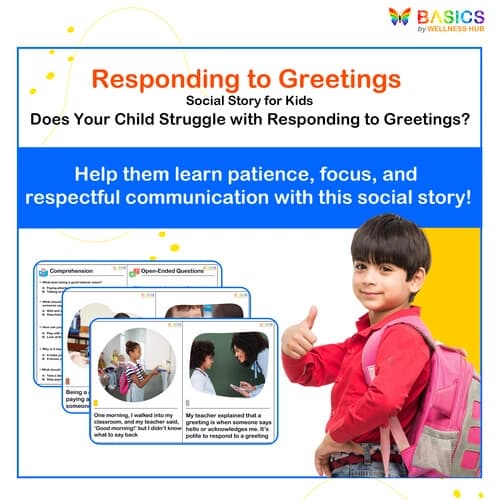
Responding to Greetings – Social Story for Kids
₹ 80.00
₹ 160.00
50% off
4.8 (56 ratings)
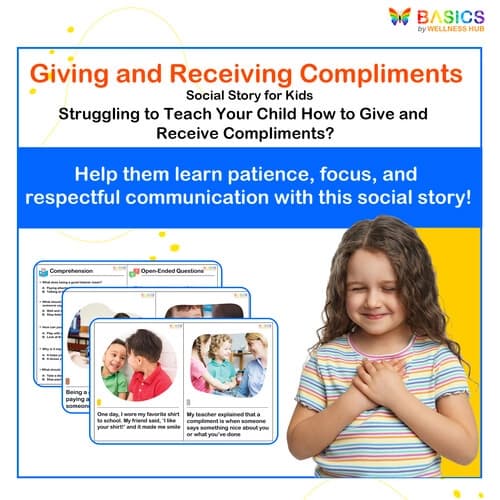
Giving and Receiving Compliments – Social Story for Kids
₹ 80.00
₹ 160.00
50% off
5.0 (52 ratings)
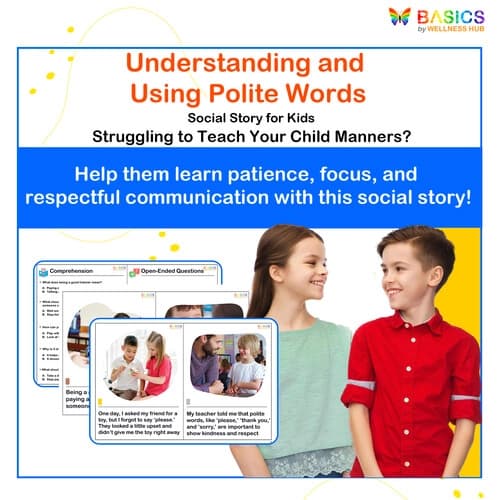
Understanding and Using Polite Words – Social Story for Kids
₹ 80.00
₹ 160.00
50% off
4.9 (48 ratings)
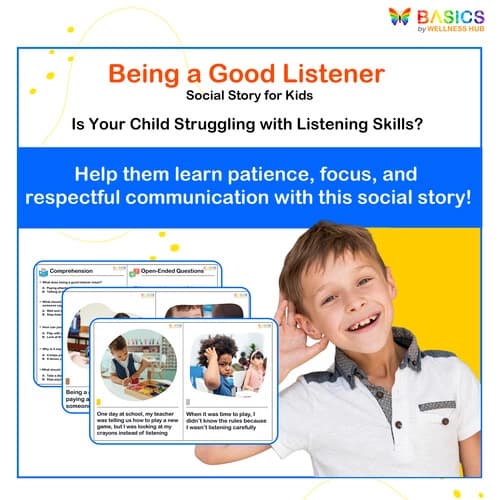
Being a Good Listener – Social Story for Kids’ Communication Skills
₹ 80.00
₹ 160.00
50% off
4.8 (44 ratings)
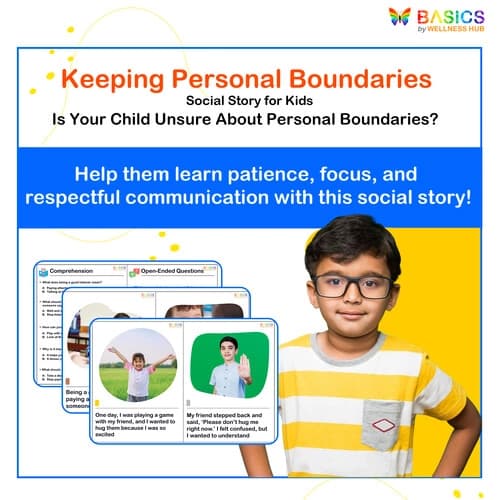
Keeping Personal Boundaries – Free Social Story for Kids’ Personal Space
FREE
₹160
100% off
5.0 (58 ratings)
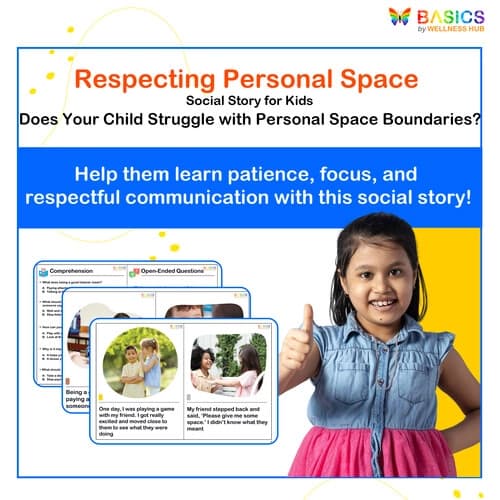
Respecting Personal Space – Social Story for Kids’ Personal Boundaries
₹ 80.00
₹ 160.00
50% off
4.9 (54 ratings)
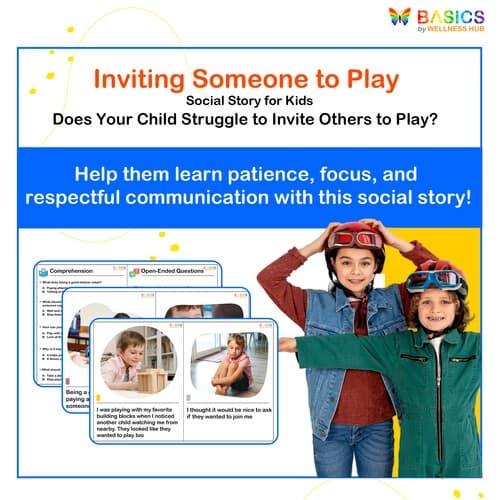
Inviting Someone to Play – Social Story for Kids’ Social Skills
₹ 80.00
₹ 160.00
50% off
4.8 (50 ratings)
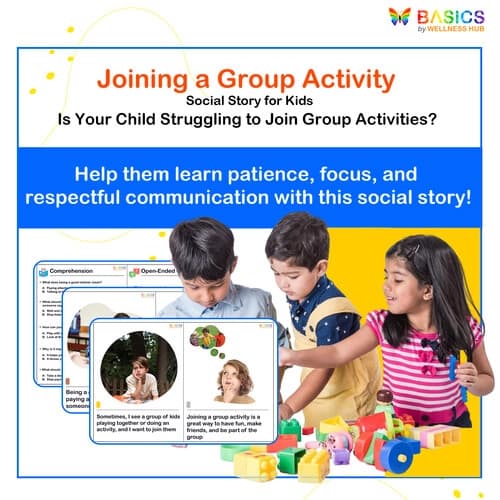
Joining a Group Activity – Social Story for Kids’ Social Confidence
₹ 80.00
₹ 160.00
50% off
5.0 (46 ratings)
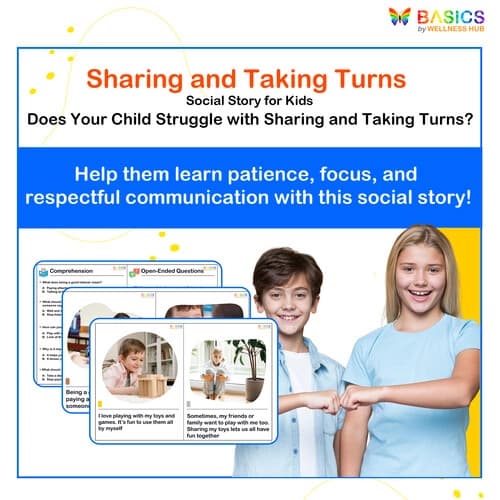
Sharing and Taking Turns – Social Story for Kids’ Social Skills
₹ 80.00
₹ 160.00
50% off
4.9 (42 ratings)
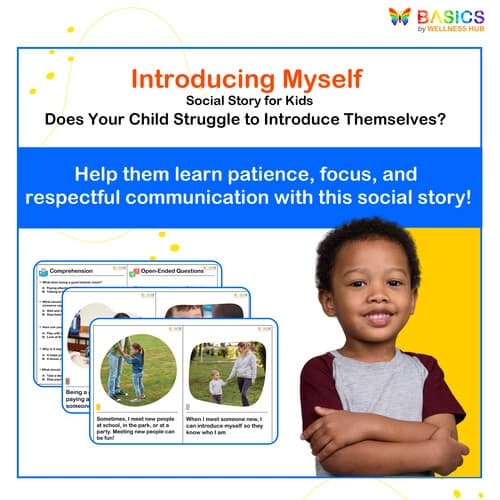
Introducing Myself – Free Social Story for Kids’ Communication Skills
₹ 80.00
₹ 160.00
50% off
4.8 (60 ratings)
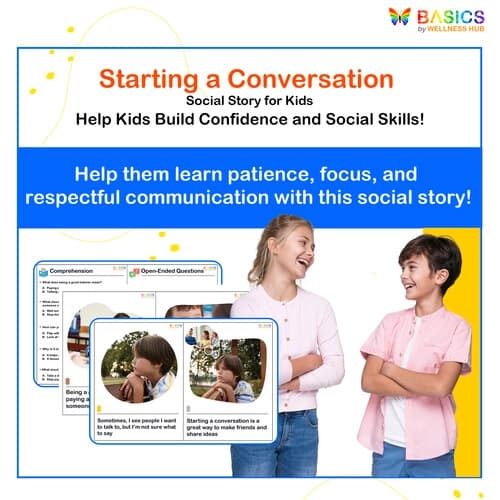
Starting Conversations – Social Story for Kids' Communication Skills
₹ 80.00
₹ 160.00
50% off
5.0 (56 ratings)
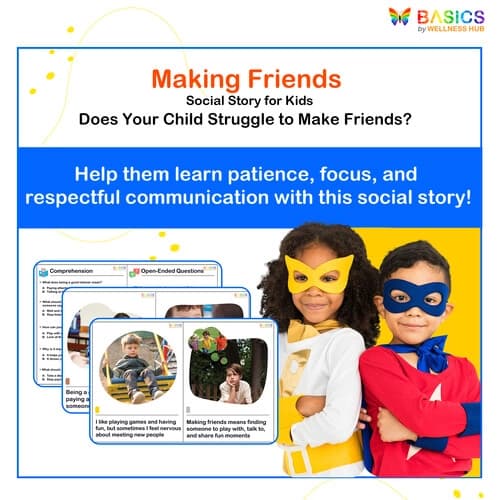
Making Friends – Social Story for Building Social Skills
₹ 80.00
₹ 160.00
50% off
4.9 (52 ratings)
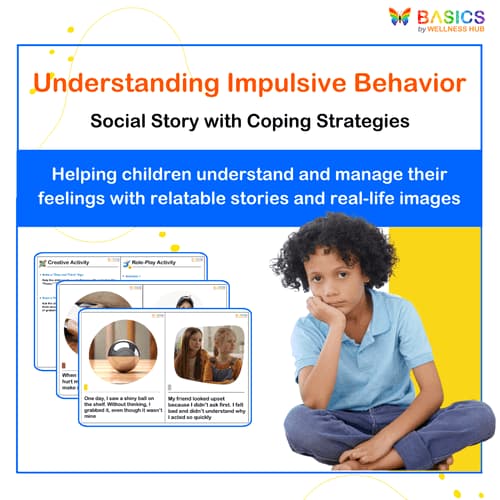
Understanding Impulsive Behavior: Social Story with Coping Strategies
₹ 80.00
₹ 160.00
50% off
4.9 (42 ratings)
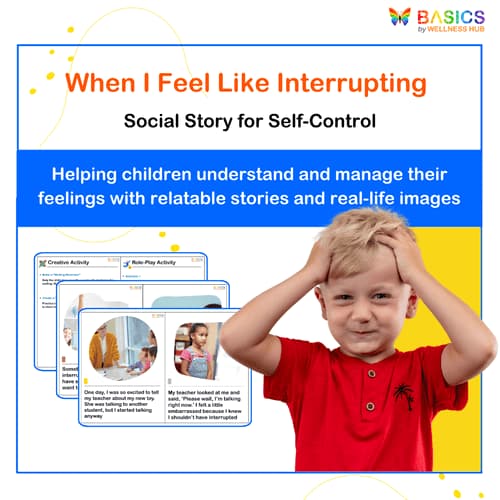
When I Feel Like Interrupting – Social Story for Self-Control
₹ 80.00
₹ 160.00
50% off
4.8 (60 ratings)
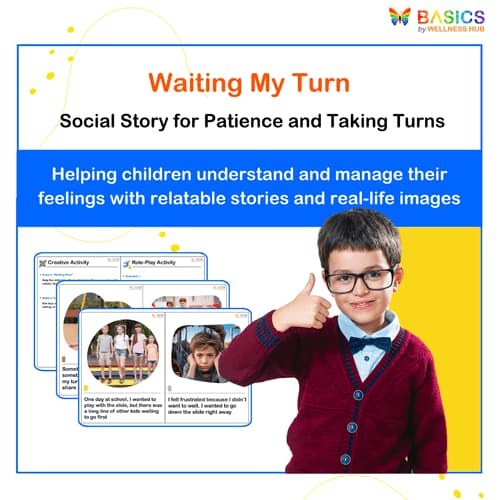
Waiting My Turn – Social Story for Patience and Taking Turns
₹ 80.00
₹ 160.00
50% off
4.7 (56 ratings)
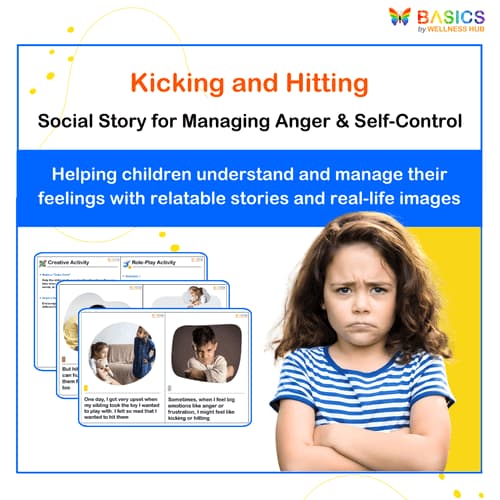
Kicking and Hitting – Social Story for Managing Anger & Self-Control
₹ 80.00
₹ 160.00
50% off
4.6 (52 ratings)
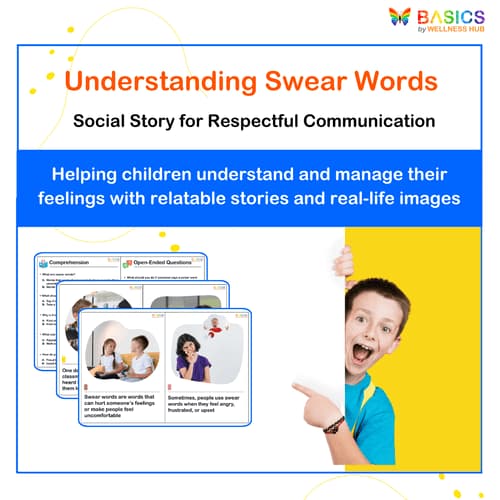
Understanding Swear Words – Social Story for Respectful Communication
₹ 80.00
₹ 160.00
50% off
4.9 (48 ratings)
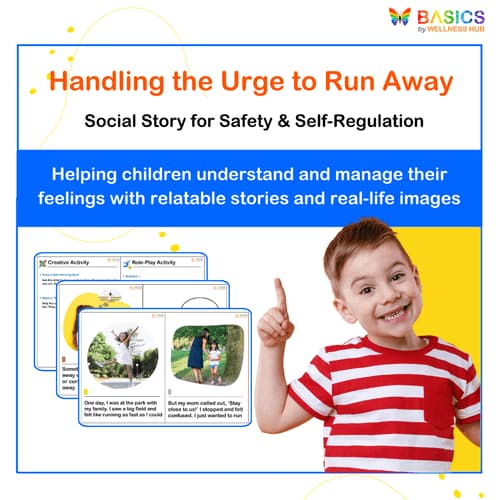
Handling the Urge to Run Away – Social Story for Safety & Self-Regulation
₹ 80.00
₹ 160.00
50% off
4.8 (44 ratings)
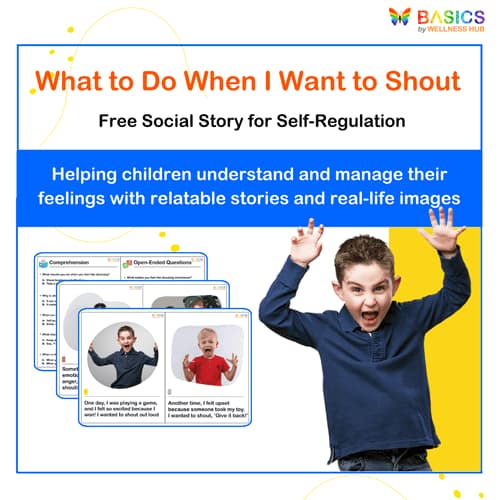
What to Do When I Want to Shout – Free Social Story for Self-Regulation
FREE
₹160
100% off
4.7 (58 ratings)

Using Kind Hands – Social Story for Gentle Behavior & Self-Control
₹ 80.00
₹ 160.00
50% off
4.6 (54 ratings)

Head Banging – Social Story for Safe Alternatives & Self-Regulation
₹ 80.00
₹ 160.00
50% off
4.9 (50 ratings)
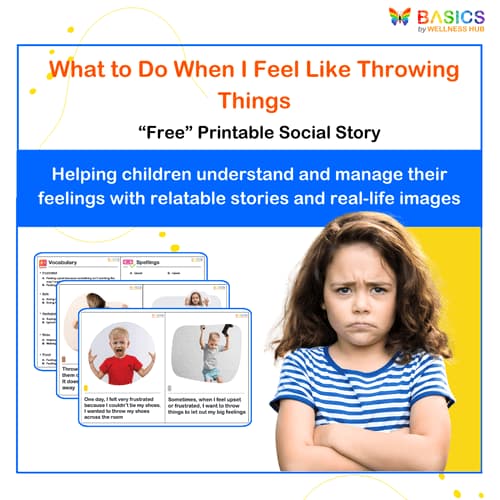
What to Do When I Feel Like Throwing Things – Free Printable Social Story
FREE
₹160
100% off
4.8 (46 ratings)

Think It or Say It: Classroom Conduct Guide
₹ 80.00
₹ 160.00
50% off
4.7 (42 ratings)
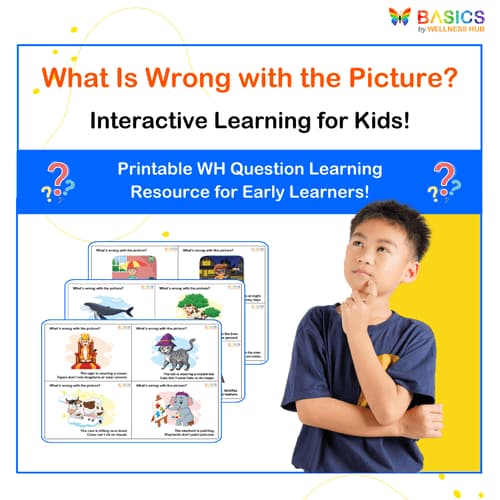
What Is Wrong with the Picture? – Fun Learning with Pictures for Kids
₹ 80.00
₹ 160.00
50% off
4.6 (60 ratings)
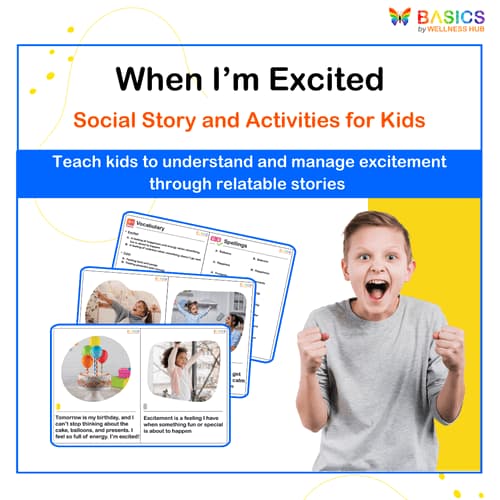
When I’m Excited: Social Story with Activities for Emotional Growth
₹ 80.00
₹ 160.00
50% off
4.7 (54 ratings)
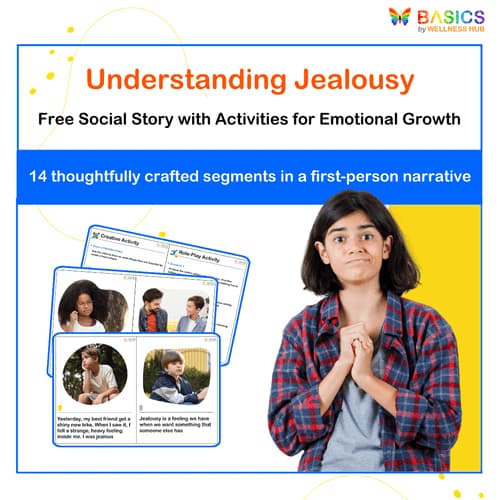
Understanding Jealousy: Free Social Story with Activities for Emotional Growth
FREE
₹160
100% off
4.6 (56 ratings)

When I’m Angry: Social Story with Activities for Kids
₹ 80.00
₹ 160.00
50% off
4.9 (54 ratings)

When I’m Sad: A Social Story for Emotional Regulation
₹ 80.00
₹ 160.00
50% off
4.7 (56 ratings)
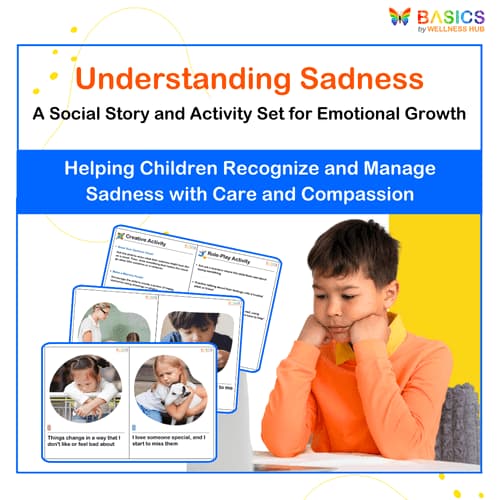
Understanding Sadness: Free Social Story with Activities for Kids
FREE
₹160
100% off
4.6 (52 ratings)

Flying in a Plane: A Social Story for Kids
₹ 80.00
₹ 160.00
50% off
4.6 (44 ratings)

At the Mall: A Social Story for Kids
₹ 80.00
₹ 160.00
50% off
4.9 (60 ratings)

Greeting People: A Social Story for Kids
₹ 80.00
₹ 160.00
50% off
4.8 (56 ratings)

Think It or Say It: Social Etiquette for Kids
₹ 80.00
₹ 160.00
50% off
4.7 (52 ratings)

Think It or Say It: Problem-Solving Skills Guide
₹ 80.00
₹ 160.00
50% off
4.6 (48 ratings)

Think It or Say It: Gratitude and Appreciation Guide
₹ 80.00
₹ 160.00
50% off
4.9 (44 ratings)

Think It or Say It: Family Dynamics Guide
₹ 80.00
₹ 160.00
50% off
4.8 (58 ratings)

Think It or Say It: Navigating Empathy and Kindness
₹ 80.00
₹ 160.00
50% off
4.7 (54 ratings)

Think It or Say It: Emotions and Feelings Guide
₹ 80.00
₹ 160.00
50% off
4.6 (50 ratings)

Think It or Say It: Diversity and Inclusion for Kids
₹ 80.00
₹ 160.00
50% off
4.9 (46 ratings)
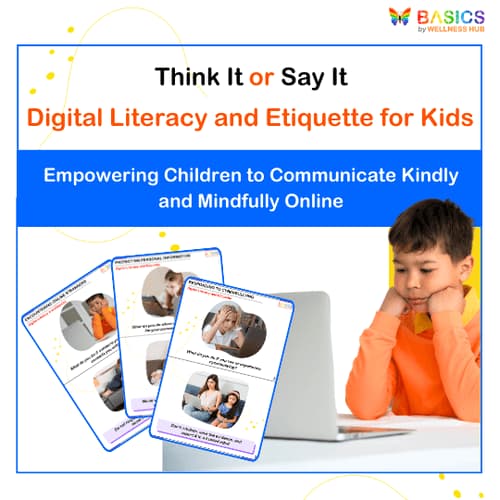
Think It or Say It: Digital Literacy and Etiquette
₹ 80.00
₹ 160.00
50% off
4.8 (42 ratings)
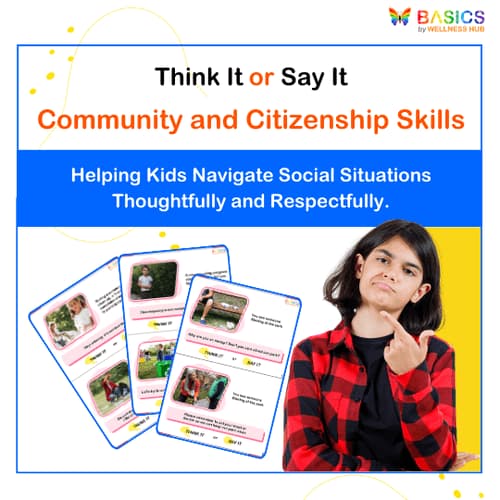
Think It or Say It: Community and Citizenship Skills
₹ 80.00
₹ 160.00
50% off
4.7 (60 ratings)

Dealing with Boredom: A Social Story for Kids
₹ 80.00
₹ 160.00
50% off
4.7 (44 ratings)

Coping with Changes in Routine: Social Story for Kids
₹ 80.00
₹ 160.00
50% off
4.6 (58 ratings)

When I'm Upset: A Social Story for Managing Feelings
₹ 80.00
₹ 160.00
50% off
4.9 (54 ratings)

Understanding Swear Words: A Social Story for Kids
₹ 80.00
₹ 160.00
50% off
4.9 (48 ratings)
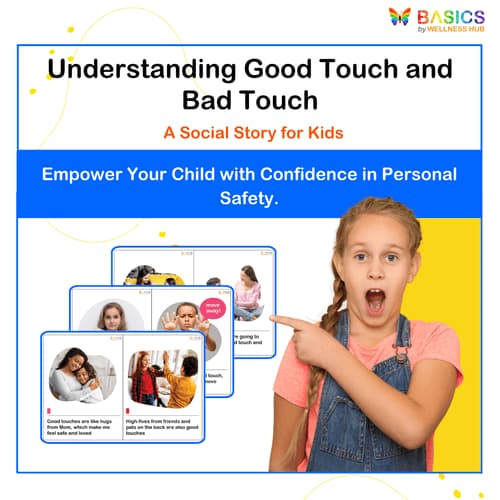
Understanding Good Touch and Bad Touch - A Child Safety Social Story
₹ 80.00
₹ 160.00
50% off
4.7 (46 ratings)

Sharing Toys with Friends: Social Story for Kids
₹ 80.00
₹ 160.00
50% off
4.6 (42 ratings)

Overcoming Disappointment: A Social Story for Kids
₹ 80.00
₹ 160.00
50% off
4.9 (56 ratings)

Managing Jealousy - A Social Story for Kids
₹ 80.00
₹ 160.00
50% off
4.7 (48 ratings)

Making New Friends: Social Story for Kids
₹ 80.00
₹ 160.00
50% off
4.6 (44 ratings)

Learning to Be a Good Listener: Social Story for Kids
₹ 80.00
₹ 160.00
50% off
4.9 (58 ratings)

Dealing with Anger: A Social Story for Children
₹ 80.00
₹ 160.00
50% off
4.8 (56 ratings)

Coping with Fear: A Social Story for Children
₹ 80.00
₹ 160.00
50% off
4.7 (52 ratings)

Family and Friends: Conversation Cards for Kids Explore Bonds, Traditions, and Fun!
₹ 80.00
₹ 160.00
50% off
4.9 (46 ratings)

Daily Routines: Conversation Cards for Kids Explore Everyday Activities with Fun Questions
₹ 80.00
₹ 160.00
50% off
4.8 (42 ratings)

Global Traditions: Conversation Cards for Kids Explore Cultures and Holidays Through Fun Questions
₹ 80.00
₹ 160.00
50% off
4.6 (52 ratings)

Emotions Flashcards for Kids: Free Printable PDF
FREE
₹160
100% off
4.8 (44 ratings)

Toys Flashcards for Kids: Free Printable PDF
FREE
₹160
100% off
4.6 (42 ratings)

Wild Animals Flashcards for Kids: Free Printable PDF
FREE
₹160
100% off
4.6 (45 ratings)

Conversation Cards - Body Parts and Senses: Engage Kids in Learning About Their Bodies
₹ 80.00
₹ 160.00
50% off
4.8 (36 ratings)

Conversation Cards - Basic Emotions: Questions to Help Kids Express Feelings
₹ 80.00
₹ 160.00
50% off
4.6 (52 ratings)

Action Flashcards for Kids: Learn Everyday Activities
₹ 80.00
₹ 160.00
50% off
4.8 (44 ratings)
Real Parent Success Stories – How Behavioral Skills Resources Help Kids Thrive
Our resources have positively impacted families and therapists, helping children make meaningful progress in speech and language development. Here’s what some of our users have shared:
The social stories have been so helpful! My son understands what to expect in certain situations, and it’s made transitions much smoother. He’s also more comfortable around new people.
Linda, Parent
These testimonials reflect how our resources make speech and language learning accessible and effective, empowering children and giving parents the confidence to support their growth.
Detailed Description
Introduction to Behavioral Skills Development Resources
Behavioral skills are crucial for a child’s emotional, social, and academic growth. Developing self-regulation, empathy, and social interaction skills helps children navigate social situations, build relationships, and express themselves in healthy ways. Our behavioral skills resources are designed to help children understand emotions, manage responses, and develop positive behavior patterns. With activities and stories tailored to various social and emotional situations, parents, educators, and therapists can confidently support children in building behavioral skills that will benefit them throughout life.
How Our Resources Aid in Behavioral Skills Growth
Our behavioral skills resources are crafted to promote healthy social interaction, self-regulation, and emotional awareness. Social stories introduce real-life scenarios that help children understand responses to various situations, while emotion flashcards aid in recognizing and naming feelings. Role-playing activities and conversation cards encourage children to practice communication, empathy, and patience. These tools provide structured opportunities for children to learn positive behaviors, manage their emotions, and build relationships, all in a safe and guided environment.
Types of Behavioral Skills Resources We Offer
Emotion Identification and Flashcards: Emotion flashcards help children learn to identify and name different feelings. By practicing with these cards, children gain a better understanding of their own emotions and those of others, enhancing empathy and emotional intelligence, which are essential for social interaction.
Social Stories for Everyday Situations: Social stories introduce children to common social scenarios, such as making friends, handling anger, or coping with disappointment. Each story presents simple, relatable narratives that teach children appropriate responses, helping them navigate social situations with confidence.
Self-Regulation and Coping Skills Activities: Activities that promote self-regulation, such as breathing exercises and calming techniques, teach children how to manage strong emotions and stay calm in challenging situations. These resources are especially helpful for children who may struggle with impulse control, anxiety, or frustration.
Role-Playing and Conversation Cards: Role-playing and conversation cards provide children with prompts to practice social skills, such as taking turns, asking questions, and responding kindly. These cards encourage children to express themselves and interact with others, promoting positive communication and relationship-building.
Who Can Use These Resources?
Our behavioral skills resources are versatile and beneficial for a range of users:
Parents: Use these resources at home to support children’s understanding of emotions and social skills in a comfortable setting.
Teachers: Integrate behavioral resources into the classroom to foster a positive learning environment and support social-emotional development.
Therapists: Apply these tools in therapy sessions for targeted practice, especially beneficial for children who need support with emotional regulation and social behavior.
These resources are designed to be user-friendly and adaptable, making it easy for anyone working with children to support their behavioral growth effectively and enjoyably.
Benefits of Behavioral Skills Development Activities at Home
Practicing behavioral skills at home allows children to develop essential social and emotional abilities in a familiar, supportive environment. These resources make it easy for parents to introduce self-regulation, empathy, and communication skills in a hands-on way. For children with specific needs, such as autism or ADHD, these structured activities provide consistent practice that fosters understanding and control over their emotions. By integrating behavioral learning into daily routines, parents can help children develop a positive approach to relationships and emotional well-being.
Tips for Using Behavioral Skills Resources Effectively
Utilizing our behavioral skills resources effectively can help children develop self-regulation, social understanding, and emotional awareness. Here are some practical tips:
Begin with Emotion Identification: Start with resources like emotion flashcards to help children recognize and name their feelings. This builds a foundation for understanding their own emotional responses.
Use Social Stories for Real-Life Practice: Read social stories together and discuss how the child might feel in similar situations. This prepares them to respond thoughtfully when similar scenarios arise in real life.
Practice Self-Regulation Techniques Regularly: Incorporate self-regulation activities like deep breathing or calming exercises into your child’s daily routine. Practicing these techniques during calm moments helps them be more effective in times of stress.
Encourage Role-Playing for Social Skills: Use role-playing cards to practice common social interactions, such as sharing, taking turns, and greeting others. This hands-on approach builds confidence in handling social situations.
Celebrate Progress and Effort: Recognize small improvements in self-regulation and social skills. Positive reinforcement encourages children to keep practicing and developing healthy behavioral skills.
Real-Life Examples of Behavioral Skills Development with Our Resources
Our behavioral skills resources provide structured and engaging ways for children to practice positive behaviors and emotional control. Here are some examples of how they can be used:
Understanding Emotions with Flashcards: A parent might use Emotion Flashcards to help their child identify and discuss different feelings. By talking about emotions like happiness, anger, and frustration, the child learns to recognize these feelings in themselves and others, improving empathy and self-awareness.
Navigating Social Situations with Social Stories: A teacher may use Social Stories about sharing and taking turns in the classroom. Reading stories about cooperation helps students see the importance of positive interactions and encourages respectful behavior toward classmates.
Building Self-Calming Techniques with Self-Regulation Activities: A therapist might introduce Self-Regulation Activities, such as breathing exercises or using sensory objects, to help a child manage anxiety. Practicing these techniques enables the child to feel more in control in challenging situations.
Practicing Communication with Role-Playing Cards: A parent could use Conversation Cards to engage their child in role-playing different scenarios, like meeting new people or expressing gratitude. This helps the child become comfortable with expressing themselves and practicing social skills.
These examples demonstrate how our resources can support behavioral development by fostering emotional awareness, social skills, and self-regulation in engaging, practical ways.
FAQs
Q1: How do I start using these resources with my child?
A1: Begin with emotion identification cards to help your child learn to recognize their feelings. Next, introduce social stories or role-playing cards to practice responses in real-life scenarios.
Q2: Which resources are best for self-regulation?
A2: Our Self-Regulation Activities are designed specifically to help children manage emotions. They include calming techniques and exercises that support emotional control.
Q3: How often should I use these activities?
A3: Consistency is key. Try to incorporate these activities into your child’s daily routine. Even 10–15 minutes per day of practicing emotional identification or self-regulation can make a difference.
Q4: Are these resources suitable for children with special behavioral needs?
A4: Yes, our resources are designed to support children with a range of needs, including those with autism, ADHD, or other behavioral challenges. They provide structured guidance and positive reinforcement to support behavioral development.
Related Topics and Further Learning for Parents
For parents interested in supporting their child’s behavioral development, the BASICS app offers additional resources and courses that provide valuable guidance:
Understanding and Managing Emotions: A course that introduces techniques for helping children recognize and control their emotions, fostering emotional intelligence.
Social Skills and Positive Behavior: Resources that focus on building essential social skills, such as making friends, sharing, and understanding social cues.
Self-Regulation Techniques for Kids: A guide to practical self-regulation methods, including breathing exercises, mindfulness, and sensory activities to help children stay calm and focused.
Empathy and Kindness: A course designed to promote empathy, understanding, and respectful behavior, teaching children the importance of kindness in their interactions.
These resources offer parents a well-rounded approach to supporting behavioral development, equipping them with tools to foster positive emotional and social growth in their child.